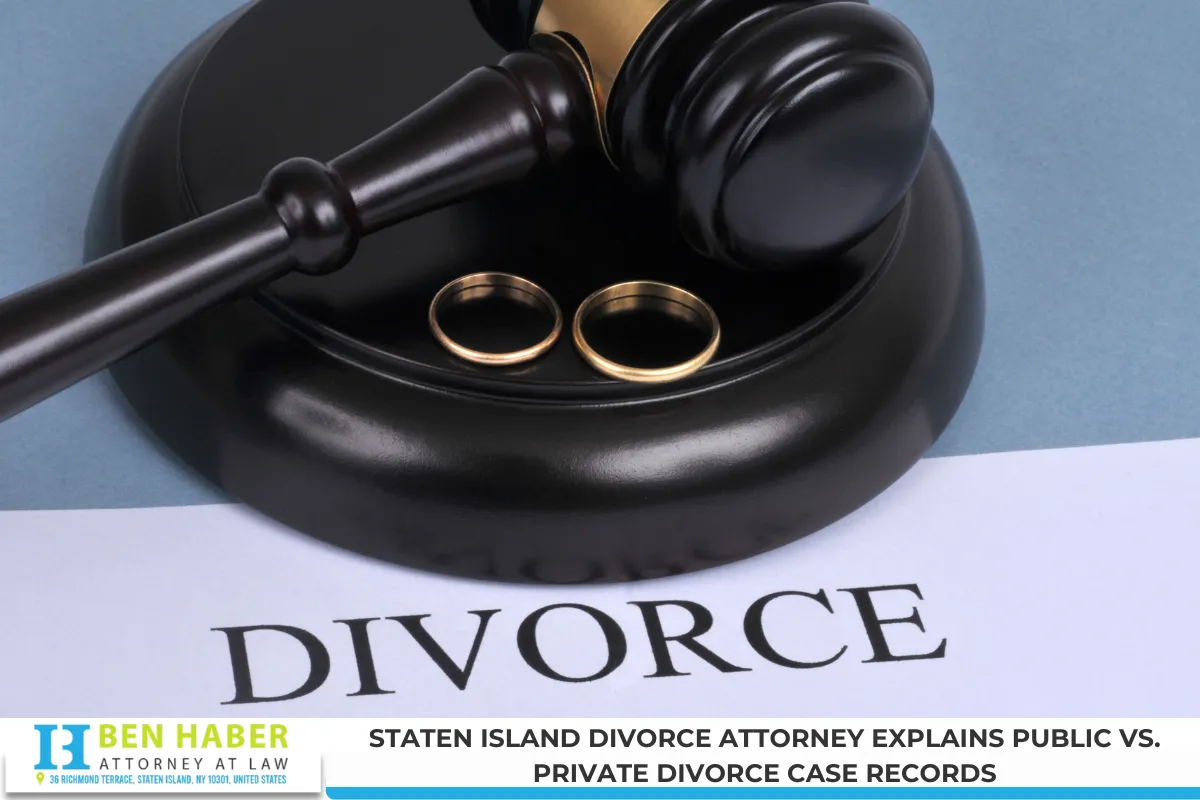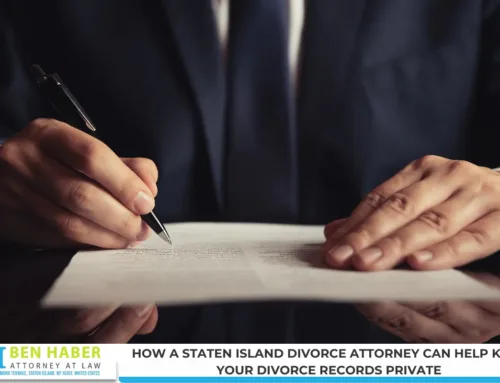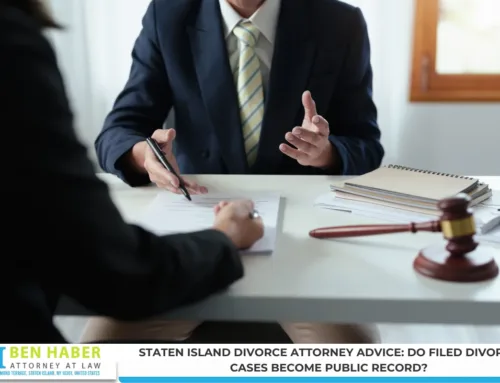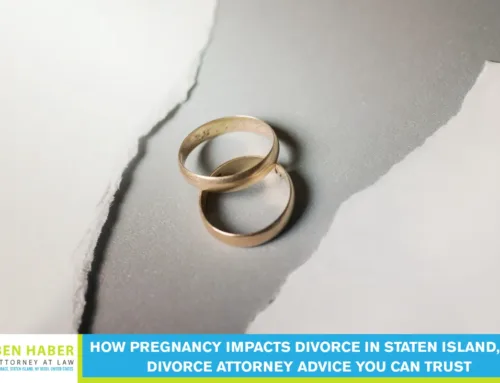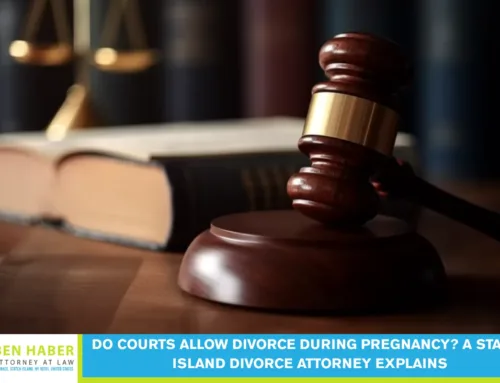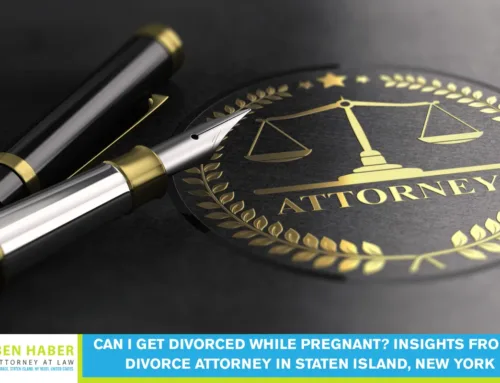Divorce Records in Staten Island: What Every Spouse Should Know
If you’re searching for a Staten Island divorce attorney, understanding how your divorce case records are handled can be a major concern. Many clients worry about privacy, especially with sensitive family law issues such as child custody, spousal support, and division of property. The problem? There’s a lot of confusion and anxiety around whether your divorce case will become public or remain private. This uncertainty can add unnecessary stress to an already difficult situation.
Here’s the good news: in New York, including Staten Island and Richmond County, divorce records are generally not public. That means your family law matters, marital property details, and personal circumstances stay protected. As a trusted divorce lawyer, I’ll walk you through exactly what’s accessible, what’s confidential, and how your rights are preserved throughout the legal process.
Divorce Case Privacy in Staten Island: What Sets New York Apart
Confidentiality and Divorce Records
Unlike many other states, New York law protects the privacy of most divorce filings. In Staten Island, divorce attorney offices routinely reassure clients that sensitive information will not be accessible to the general public. Divorce case files—including legal documents, evidence, and background information—are automatically sealed and kept confidential by the court, unless a judge orders otherwise for specific reasons.
What the Court Keeps Private
- Personal Identifiers: Names, addresses, social security numbers, and other details are not released.
- Financial Information: Data on assets/property division, spousal support, child support, and marital assets and properties is not disclosed to non-parties.
- Sensitive Family Law Matters: Allegations regarding domestic violence, parental alienation, and child custody disputes are strictly shielded from public view.
Who Has Access to Divorce Records?
Only the parties involved, their family lawyers or divorce attorneys, and certain court personnel have access to the complete file. If you’re represented by a Staten Island family law firm, your attorney can review your divorce records and explain anything you need to know. In rare cases, third parties may be granted access if a judge finds a compelling legal reason.
Public vs. Private: Understanding the Nuances in Divorce Filings
Types of Divorce and Their Impact on Privacy
Uncontested Divorce
When spouses agree on all terms—such as division of property, spousal support, and custody goals—this is called an uncontested divorce. In these cases, the process is typically smoother, faster, and keeps most records sealed. A family law attorney will handle filings to ensure your legal documents remain confidential.
Contested Divorce Matters
When there are disagreements over child custody, assets/property division, or calculation of child support, the case may go before a judge. These contested divorce matters involve additional filings, hearings, and sometimes trial testimony. Even so, the court keeps your divorce records private, although some information might be disclosed if necessary for legal arguments.
How Your Staten Island Divorce Lawyer Protects Your Privacy

The Role of Legal Counsel
A skilled divorce attorney is essential for navigating privacy issues in family court hearings. From filing the official Complaint to managing the retainer process and attorney fees, a knowledgeable legal expert can help you understand every aspect of the legal process.
Steps Your Divorce Lawyer Takes
- Initial Consultation: Discuss your privacy concerns and family law challenge with a family attorney in person or online.
- Filing the Divorce Questionnaire: Your divorce lawyer will help complete the necessary paperwork, ensuring private data is properly submitted.
- Court Communications: All communication with Staten Island Family Court is handled professionally, protecting your client privilege.
- Managing Sensitive Information: If your divorce involves domestic violence, paternity issues, or substantial property, your legal services provider ensures your interests are safeguarded.
Key Differences Between Public and Private Divorce Proceedings
Court Filings and Access
In some states, court documents in divorce cases are available to anyone. In Staten Island and throughout New York, the reverse is true. Only certain types of filings—such as basic case numbers and names of parties—might appear in online databases, but all details of marital property, spousal support, child support, and legal documents are confidential.
Exceptions to Privacy
A judge can unseal a record in rare situations, such as:
- Criminal investigations
- Disputes over the validity of a will
- Appeals that require portions of the file for legal arguments
If this occurs, your family law attorney will be your strong advocate, fighting to maintain your privacy and limit public exposure.
Common Family Law Issues and Divorce Case Records
Child Custody Disputes and Privacy
Child custody disputes can be emotionally charged and complex. Fortunately, the details remain private—only the parties, their family attorneys, and the judge know the specifics. Sensitive information about parental alienation, custody goals, or relocation to scheduling vacations is never made public.
Spousal Support and Equitable Distribution
Calculations regarding spousal support and equitable distribution of marital assets and properties are not disclosed outside the courtroom. This ensures neither spouse faces embarrassment or unwanted scrutiny over financial or marital issues.
Domestic Violence and Orders of Protection
Allegations of domestic violence require swift action, and divorce lawyers are trained to handle these with care. The details of such cases, including any protective orders, are kept confidential to protect all parties, especially children.
Types of Divorce: How They Influence Record Handling

Uncontested Divorce and Confidentiality
An uncontested divorce allows both parties to reach a complete agreement on critical matters without prolonged hearings. This not only reduces legal fees and retainer fee costs but also minimizes exposure, as only essential legal documents are submitted.
Contested Divorce Services and Additional Filings
When issues arise, contested divorce services may be needed. More filings, family court hearings, and possible trial proceedings may occur, but a contested divorce attorney will ensure that your records remain protected.
Cost and Privacy: What Staten Island Clients Need to Know
Flat Fee vs. Hourly Rate
Clients are often concerned about the cost of hiring a divorce lawyer, especially when attorney fees, additional fees, or expensive retainers are discussed. A reputable family law firm will explain whether your case qualifies for a flat fee or requires an hourly rate or retainer quote. All fee agreements and financial background information are confidential and not part of the public record.
The Retainer Process
- Retainer fee: Initial payment held in trust
- Hourly rate: Charged for services rendered
- Additional fees: Disclosed up front during the initial consultation
All documents and agreements regarding fees, marital assets, and legal advice remain confidential and are protected by client privilege.
Navigating Complex Family Law Challenges
Handling High-Asset and Complex Divorces
Divorces involving substantial assets or substantial property, retirement issues, or unique tax considerations require a divorce attorney skilled in the division of property. The greater the stakes, the more important privacy becomes. Your attorney will ensure sensitive information on marital assets, investments, or business interests is kept secure.
Protecting Children’s Interests
When dealing with issues like paternity, custody, or calculation of child support, legal experts prioritize the child’s well-being and privacy. Discussions around child support, visitation, or relocation are held privately with your family lawyer and the judge.
Taking the Next Step with a Staten Island Divorce Lawyer
Facing a divorce can be stressful, especially when privacy and the security of your family law issues are at stake. Working with skilled divorce attorneys ensures that your rights, privacy, and interests are fully protected. Whether you need help with an uncontested divorce, child custody disputes, spousal support, or any family law challenge, the right family law firm in Staten Island will provide accurate estimates, quick availability, and strong advocates for your case.
The initial consultation is your chance to discuss concerns, understand the legal process, and get legal advice tailored to your unique situation. You’ll also get clarity on attorney fees, the retainer process, and how your records will remain private.
If you’re ready to discuss your divorce issues with a trusted family law attorney, reach out to a Staten Island divorce lawyer today for a confidential consultation. Take the first step toward clarity and peace of mind, knowing your case and records are in good hands.
Staten Island Divorce Attorney — Benjamin Haber, Staten Island Divorce Lawyers

If you need a trusted divorce attorney in Staten Island, Benjamin Haber, Staten Island Divorce Lawyers, is ready to help. We provide confidential and personalized legal services for all family law issues, including child custody, spousal support, and division of property. Our experienced divorce lawyers protect your privacy and guide you through every step, whether you’re facing an uncontested divorce or complex family court hearings. With a strong reputation in Staten Island and surrounding areas, we offer a free initial consultation and fast response to urgent divorce issues. Call (718) 442-0960 or fill out our contact form today. Let a skilled family lawyer help you make informed decisions with certainty during this important time.
Frequently Asked Questions
Are Divorce Records Ever Public?
No. In New York—including Staten Island and Richmond County—divorce records are sealed and not open to the public. Only the parties, their divorce lawyers, and authorized court staff have access.
Can Employers or Third Parties Access My Divorce Case?
Unless you provide them, no one outside the legal process has access. There are rare exceptions, but your family law attorney will advise you on how to respond to any such request.
What If I Want My Record Sealed Further?
Speak to your divorce lawyer about your privacy concerns. In certain circumstances, additional sealing orders can be requested to further restrict access.
Disclaimer: The information provided in this article is for general informational purposes only and is not intended as legal advice. Each divorce or family law matter is unique, and the laws governing divorce in Staten Island, New York may change or be subject to interpretation. Reading this article does not create an attorney-client relationship with Benjamin Haber, Staten Island Divorce Lawyers. For personalized legal advice or representation regarding your specific situation, please contact our office at (718) 442-0960 or complete our contact form to schedule a confidential consultation with a qualified divorce attorney.
Read How a Staten Island Divorce Attorney Can Help Keep Your Divorce Records Private

